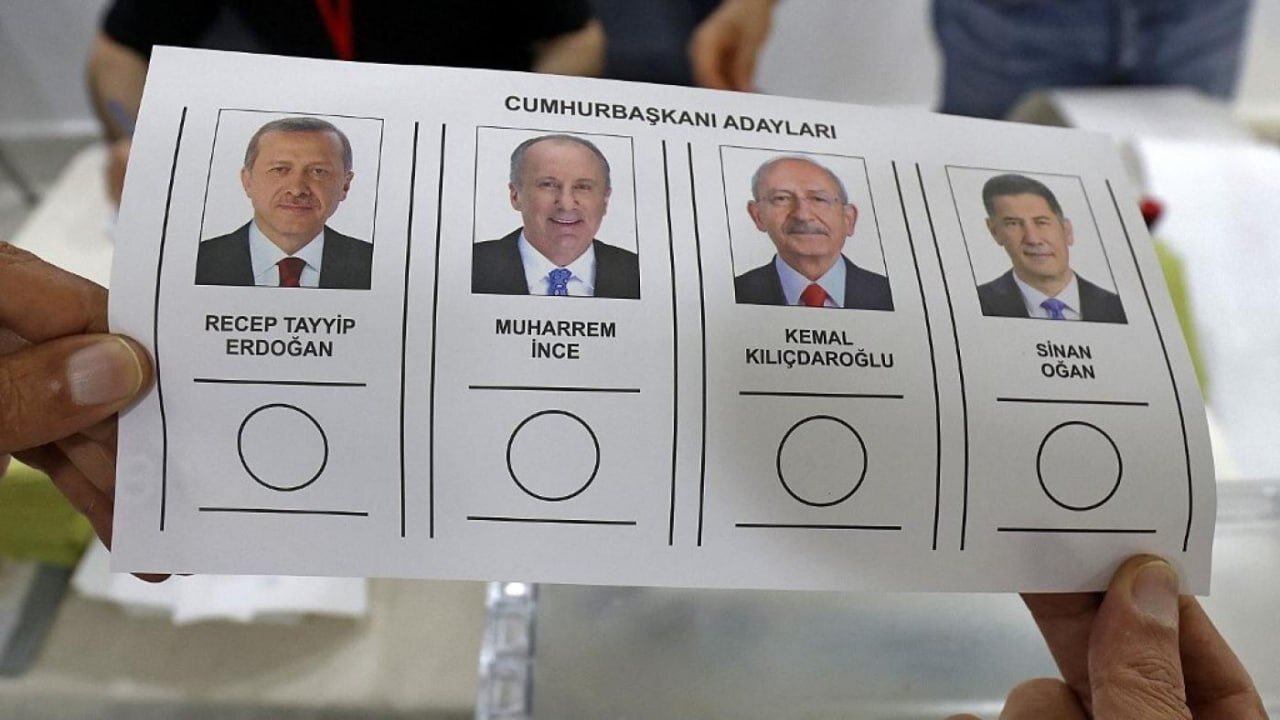Turkey elections head for a runoff
Turkish voters flock to polls in critical elections with excitement

TEHRAN- Turkey’s Supreme Election Council confirmed that Monday’s presidential elections failed to give a clear-cut victory because neither of the contenders, incumbent Erdogan and the main opposition candidate Kilicdaroglu reached the 50 percent threshold to win outright. The final showdown will be decided in a run-off on May 28.
Simultaneously, parliamentary elections were held to elect 600 members of parliament to the Grand National Assembly of Turkey.
A tight race was held between President Recep Tayyip Erdogan and Kemal Kılıçdaroğlu, head of the main opposition Republican People’s Party (CHP).
The third candidate Sinan Ogan appealed for nationalist votes and the fourth presidential contender Muharrem Ince withdrew from the race held on Sunday, May 14.
Given the margins, Ogan’s 5.25 percent would be a huge help to either Erdogan or Klicdaroglu.
Ogan has criticized Erdogan’s costly foreign policy, especially Turkey’s proximity to Russia and its distance from the West, and has promised closer relations with the Western countries. In the wake of Turkey’s purchase of the S-400 air defense system from Russia in 2019, the United States removed Turkey from the F-35 fighter jet program.
Erdogan, 69, founder and leader of the ruling Justice and Development Party, has been leading the country since 2014 as the 12th president. He served as prime minister from 2003-14 and as mayor from 1994-8.
Kilicdaroglu, 74, has a chance for the first time as a six-party bloc of opposition parties back him. Also referred by his initials KK, he is an economist, retired civil servant, and social democratic politician. He is the leader of CHP and has been leader of the Main Opposition in Turkey since 2010. He served as a member of parliament for Istanbul’s second electoral district from 2002 to 2015 and as an MP for Izmir’s second electoral district since 2015.
Turnout
Even minutes before the polls opened on Sunday across the country officially at 8 am (till 5 pm), many voters had already queued in schools and some public institutions in Turkey’s largest city Istanbul of 15.4 million, and the capital Ankara.
Nearly 89 percent of more than 64 million eligible voters in Turkey cast their votes on Monday to elect a president and a parliament.
The spokesperson of the Iranian Foreign Ministry, Nasser Kanaani, hailed the high turnout as a victory for democracy in the neighboring state.
There were more than 60 million eligible voters in Turkey, including close to five million first-time voters, and an estimated 5.3 percent of Turkish voters were registered to cast their ballots abroad.
Ahmet Yener, the head of the Supreme Election Council (YSK), says 1,817,010 votes were cast overseas, and only 30.8 percent of those ballot boxes had been opened until Tuesday morning.
The choice of some 3.4 million voters registered abroad – predominantly in Europe and especially in Germany -- was crucial in deciding the outcome of the Sunday election as well as the runoff, reports Euronews. Turkish voters in Europe overwhelmingly supported Erdogan in the 2018 presidential election, when he garnered 60 percent of their votes.
In the meantime, Erdogan oversaw the delivery of homegrown EV by carmaker Togg, Turkey’s first electric car and the first vehicle ever to be made by Turkey’s car industry, in early April just ahead of elections. The EV maker plans to start exports to Europe from the end of 2024.
Erdogan on Monday officially became the first owner of the indigenous EV, as long-awaited shipments start. Many consider this as Erdogan’s ploy to maintain his support in Europe and abroad.
Turkey’s electoral system
Voters also elected 600 lawmakers in 81 provinces.
AKP and Erdogan had long supported a policy of turning Turkey into an executive presidency, replacing the existing parliamentary system. When Erdogan called for early elections in April 2018, he won and called for constitutional changes reducing the legislative powers of Parliament and crucially increasing the powers of the President to rule by decree and become both the country’s head of state and head of government.
Challenges
During his tenure Erdogan’s challenges included his tackling of the Feb. 6 earthquake. Economic challenges including high inflation and weak currency were also at the forefront. The lira was at 19.66 to a dollar on Monday, after reaching 19.70 in earlier trading, its weakest since a record low of 19.80 hit in March this year following the earthquake.
On the sidelines, Sweden’s NATO ratification is likely to wait until after Turkey’s elections. Finland has become a NATO member but Sweden’s bid will remain on halt until before the final result of Turkish elections.
In the Ukraine war Turkey has remained neutral, has cooperated with both Russia and Ukraine at the same time.
What comes out of the run-off vote in two weeks is a matter of speculation as both sides have maintained a close competition. This has been Erdogan’s toughest election battle and Turkish voters will decide soon about the outcome.
High stakes and narrow polling gap between the two main candidates have led to speculation that Erdogan may interfere with the elections, challenge the results if he loses or even refuse to abide by them.
Leave a Comment